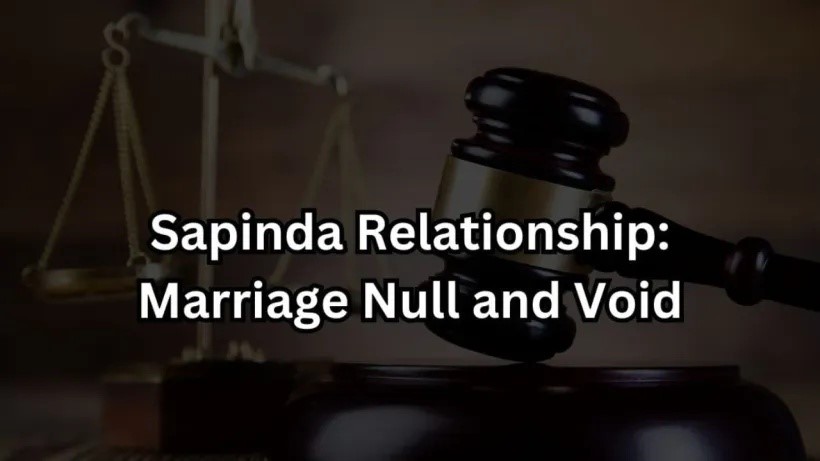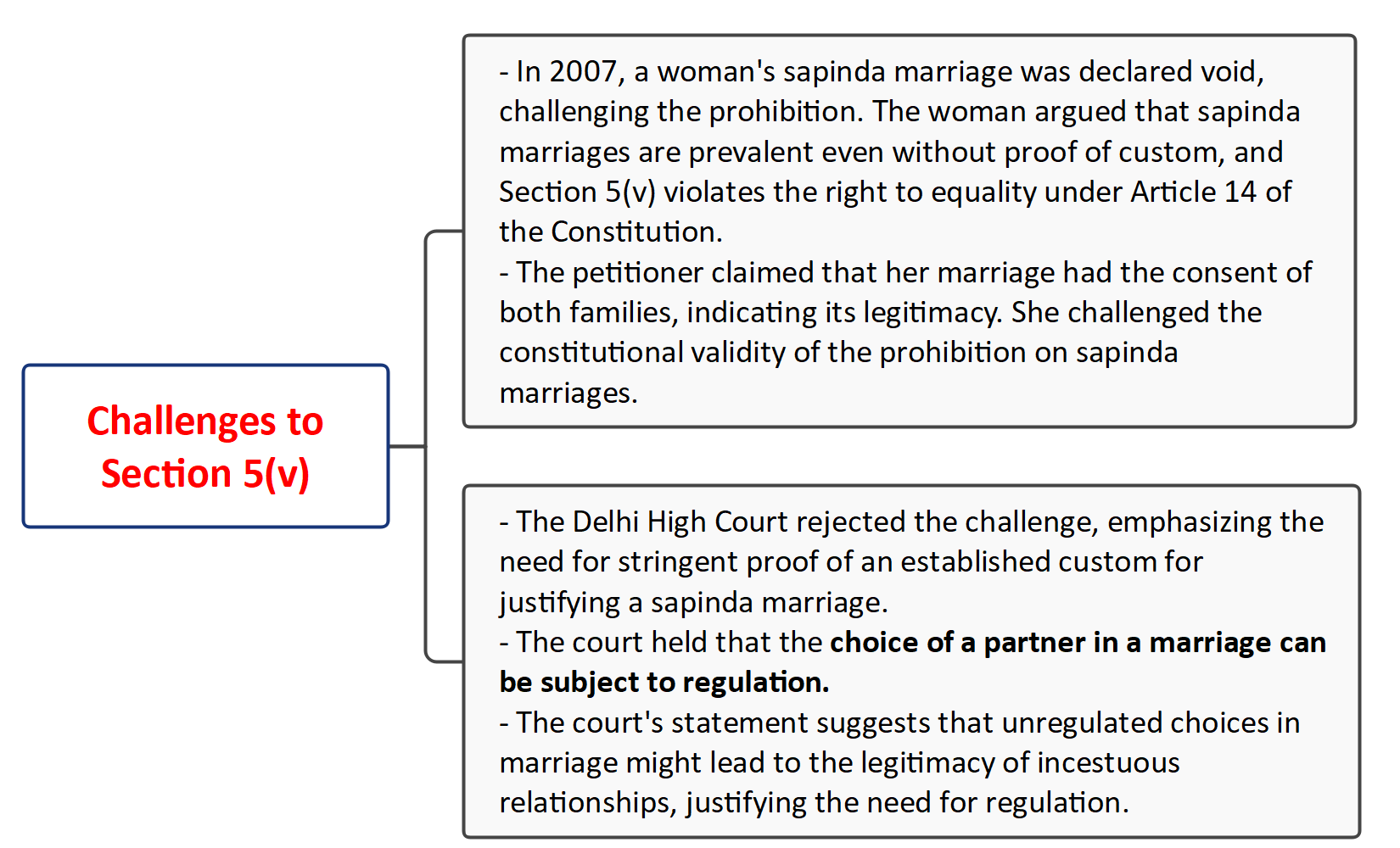Free Courses Sale ends Soon, Get It Now


Free Courses Sale ends Soon, Get It Now



Copyright infringement not intended
Picture Courtesy: lawchakra.in
Context: The Delhi High Court rejected a petition challenging the constitutionality of Section 5(v) of the Hindu Marriage Act, 1955 (HMA), maintaining the prohibition on sapinda marriages between Hindus unless customs permit it.
Sapinda Marriages

International Perspective on Incestuous Marriages
Europe
United States
Conclusion
|
PRACTICE QUESTION Q. When a religious practice encourages or mandates specific marriage customs that clash with secular legal frameworks, such as child marriages or arranged marriages, how can the state balance upholding individual religious freedom and protecting vulnerable individuals while maintaining societal cohesion and upholding human rights? |
© 2024 iasgyan. All right reserved